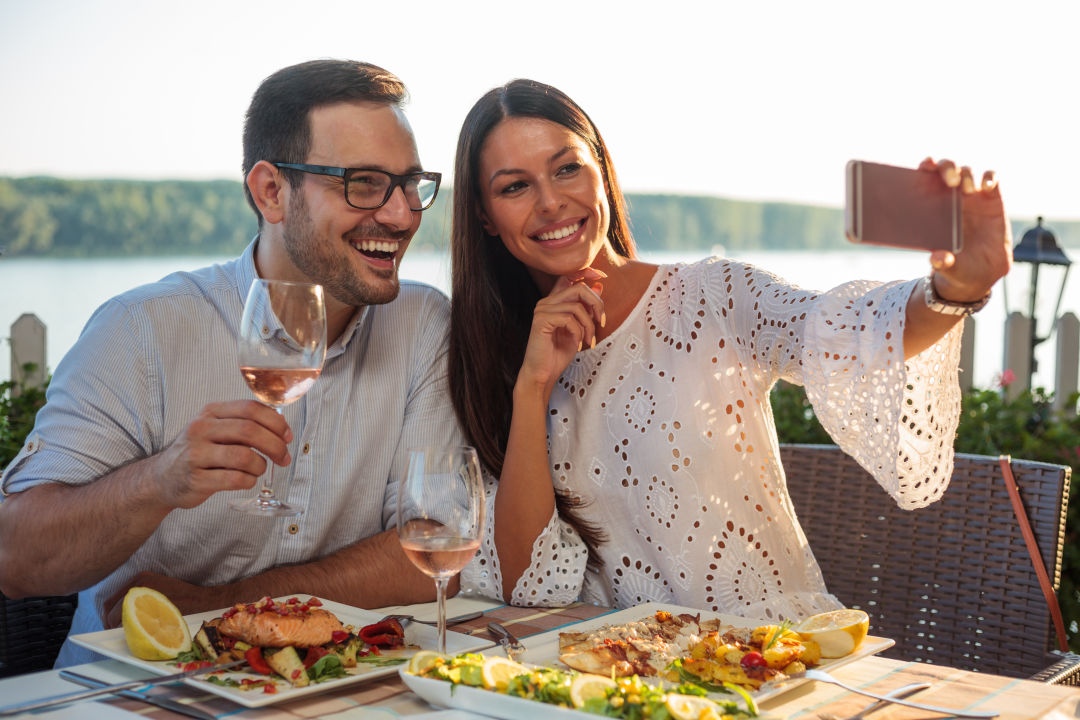The Rise of the Wine Influencer

Image: Gligatron/Shutterstock
We used to rely on qualified individuals to give us advice on any number of topics. Now, it seems like you just need to have an Instagram account. And for whatever reason (possibly lockdowns), many individuals have decided to record themselves talking about wine.
In some cases, the users possess qualifications, such as having passed wine exams or worked in a wine store, restaurant or winery. However, a great number of these influencers exist just to chat about themselves and their experiences and to show off the great location in which they abide. There is certainly nothing wrong with having an opinion about wine. It’s just the lack of expertise and obvious narcissism that strain credulity.
In general, influencers are dominated by entertainers and models and focus on beauty and fashion. However, it now seems that NBA stars have risen to the top of wine influencers. Recently, Wine Spectator featured the Portland Trail Blazers' Carmelo Anthony. His influence appears credible, since he has been enjoying, studying and collecting wine for 15 years. He has even introduced other players to the pleasures of wine, including Dwyane Wade and LeBron James. Now James, with 80 million followers, has suddenly become the world’s largest wine influencer. Anthony also has a successful YouTube program titled "What’s in Your Glass?"
An old maxim in marketing is to “sell the sizzle, not the steak.” In other words: Sell the experience, not just the product. And that seems to be the strategy for most influencers. They are more interested in selling themselves and their lifestyle than the product itself.
In an excellent article from earlier this year, James Lawrence writes, "The contract of deception between the consumer and influencer is almost totally wasted on the wine industry. Its victims want to be deceived, to subscribe to a faux lifestyle that most of us can never achieve. It encourages one of the most destructive societal pathologies—delusion. So, influencer culture is simply a mutation of a preexisting virus: the obsessive need to vicariously experience the unobtainable, via celebrity culture."
Lawrence adds: "The primary objective of the influencer is to sell themselves—everything else is a distant second."
On the other hand, Emily Saladino of Wine Enthusiast argues that Gen Z influencers are integral to wine’s success. She says that any company not involved in social media is a dinosaur that is missing tremendous opportunities. Influencers have learned to use social media outlets like Instagram and YouTube to establish their own brands and create demand for the products they represent.
California's Benson Marketing Group represents a number of wineries and offers criteria for companies looking to select an appropriate influencer. Suggestions include measuring the potential influencer’s social media growth, whether he or she targets a mass or micro audience, and one's target demographics. The company also recommends following the influencer’s past partnerships, audience location and fake followers, and suggests the influencer follow industry guidelines, like not promoting overconsumption, not promoting drinking alone, not clearly indicating sponsored content and more.
Perhaps it would be more prudent to follow successful influencers like Jancis Robinson or Madeline Puckette of Wine Folly who have spent their careers doing just that. Robinson has not only achieved the title Master of Wine, winedom’s most prestigious title, but has written or co-authored several seminal books on wine, The Oxford Wine Companion and The World Atlas of Wine, and created a TV series on wine, as well. She also is wine adviser to the Queen of England.
Puckette, meanwhile, has the most successful wine site on Instagram for educating wine consumers, as well as creating effective learning content on YouTube. Her simple and direct approach to questions, without frills or narcissism, has gained her a legion of followers. These are women to learn from.
Bob McGinn has spent his entire career in the wine industry—forming wine clubs, working in wine sales marketing and engaging in all facets of the winemaking process, including vine management, fermentation and yeast analysis. He has developed wine programs for companies such as Marriott, Sheraton and Smith & Wollensky, and consults with local restaurants. You can read more of McGinn’s work at gulfcoastwinejournal.com.